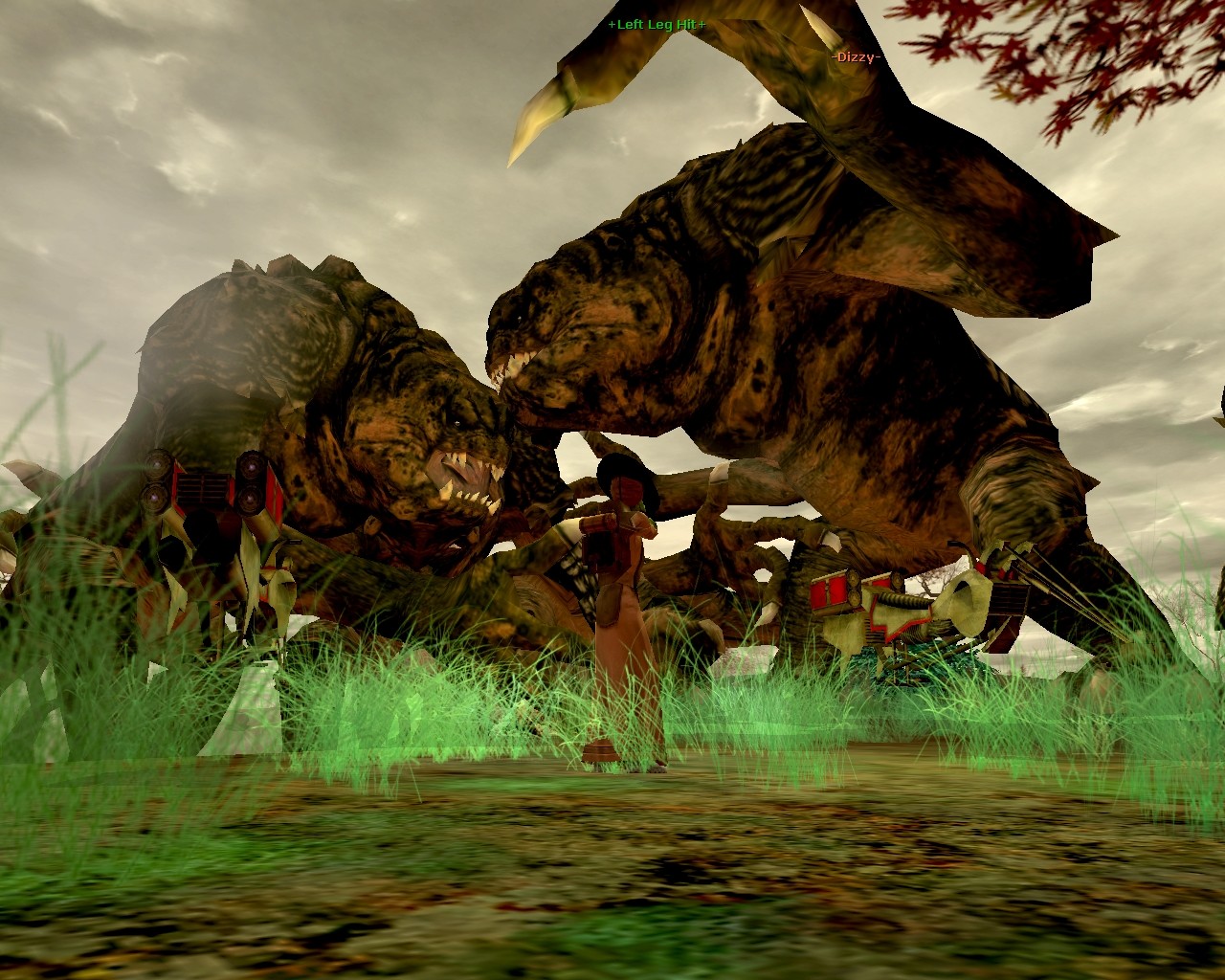 It didn’t take developers long to leverage the power of the information superhighway to make games. After all, the Internet might very well be the greatest achievement of mankind. Building games around the idea that players from around the world can interact with each other, and with knowledge that the internet itself wasn’t going anywhere, just seems like common sense. That’s where your first dose of online titles, such as Ultima Online and Everquest came into being. While MMO’s (both Ultima Online and Everquest are still running and playable, by the way) are by far the most high profile games to be struck down, the real victims here are the countless co-op games which are unceremoniously taken out behind the shed. Of course, they don’t end as definitively; they just have the online co-op ripped straight from their skeletons.
It didn’t take developers long to leverage the power of the information superhighway to make games. After all, the Internet might very well be the greatest achievement of mankind. Building games around the idea that players from around the world can interact with each other, and with knowledge that the internet itself wasn’t going anywhere, just seems like common sense. That’s where your first dose of online titles, such as Ultima Online and Everquest came into being. While MMO’s (both Ultima Online and Everquest are still running and playable, by the way) are by far the most high profile games to be struck down, the real victims here are the countless co-op games which are unceremoniously taken out behind the shed. Of course, they don’t end as definitively; they just have the online co-op ripped straight from their skeletons.
GameSpy closed its doors this summer. The matchmaking program had been used since 1996 to provide online connectivity services, and in some cases CD key authentication to hundreds of games. This shutdown affected games from a litany of developers, most of which deemed the cost of maintenance too high for older products. “Older” is pretty relative, given the list of games included Borderlands and Red Dead Redemption. Nintendo Wifi even shut down completely in the wake of the GameSpy closure, severing the few Wii and DS games with online multiplayer to be local only.

Couch co-op might be my preferred method of playing, but having online connectivity hacked from a game is bizarre. Take Age of Wonders: Shadow Magic, for instance. This is a game, released in 2003, that lets you connect via the archaic TCP/IP configuration, allowing you to host games directly from your computer. However, if you’ve purchased this fine product on Steam, you can’t connect unless you’re all on the same network. Some titles are just left by the wayside as progress moves on. It’s exceptionally strange that a game I played exclusively online in high school can now only be played by cramming a bunch of computers in the same room.
If we were talking only in terms of stripping online connectivity out of games and leaving local play alone entirely, that wouldn't be much of an issue. Frustrating, perhaps, but it's not a deathblow to these games. That's not what scares me.
Diablo III. Destiny. And (originally) the Xbox One. What do these all have in common?
They all require an online connection to be played, no matter what. And they aren’t MMO’s.
In years past, acquiring video games was a straightforward endeavor. You could skip on down to your entertainment purveyor of choice, slap down a few greenbacks and walk away the proud owner of the latest electronic delight. Barring you tossing your brand new game under an oncoming bus in elation, you had your game, and nobody could take it away from you (except when the unrelenting march of time corrupted your cartridge). Nobody could flip a switch or trip over a server cable to deny access to your game.